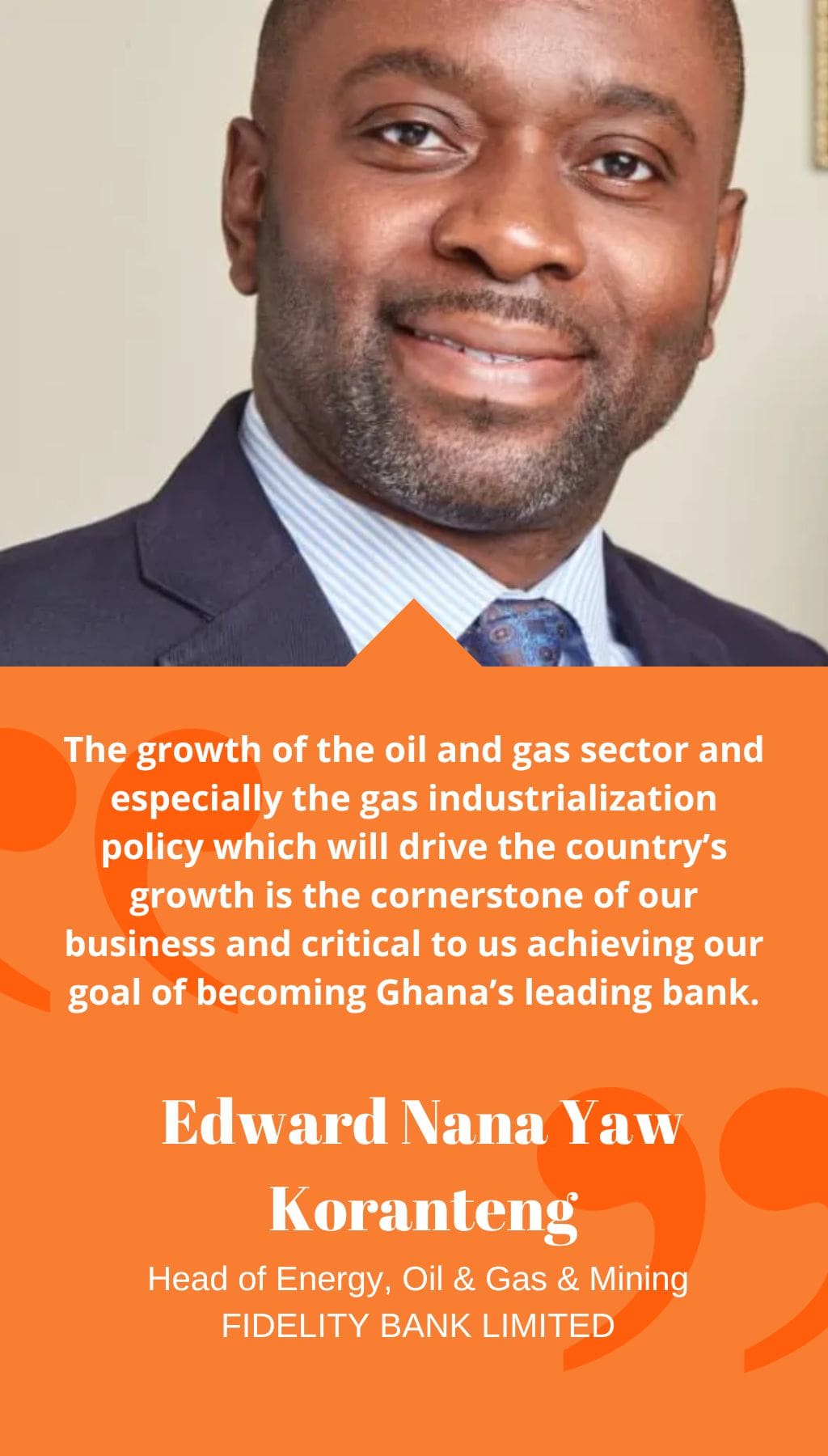
- Ghana | 31 October 2015

Fidelity Bank is currently the sixth largest bank in Ghana and has the aim of being the largest by 2020. How important is the oil and gas sector to your ambitious plans for growth?
The oil and gas sector in Ghana is of great importance to the Bank due to the cascade effect it is going to have on the entire economy. With the flow of crude and utilization of associated gas, the economy is due to expand tremendously. This will be seen in the supply of vessels to pipelines, construction of storage tanks, refineries, power stations, transmission grids, public utilities, airports, construction and real estate, manufacturing and hospitality services. With an estimated contribution of GDP being in excess of 40%, this sector shall also bring about lifestyle changes seen in expansion of the middle and upper income class and a corresponding increase in consumerism and spending patterns which shall also provides immeasurable opportunities to the Consumer and Retail division of the Bank. These sectors will also require financing which raises the need for the bank to quickly adapt to the needs of the industry as a whole and position itself for the anticipated sectoral changes. The Oil and Gas sector shall therefore inform our strategy or strategies across the various segments. In my opinion, the growth of the oil and gas sector and especially the gas industrialization policy which will drive the country’s growth is the cornerstone of our business and critical to us achieving our goal of becoming Ghana’s leading bank.
Could you provide us with an overview of the services and products that Fidelity Bank offers to the oil and gas sector?
Currently our client base in the Oil and Gas sector is largely drawn from mid to downstream companies although we are making significant forays in the upstream. We offer tailor made solutions to our clients due to the complexity of their operations. However on a broader scale, our offerings consist of Project Financing, Cash Call Financing, Contract Financing, Trade Financing, Term Loans, Overdrafts and Treasury Operations. With the midstream, our focus has been on project financing with emphasis on Tank farms and major Power projects in Ghana. We are currently one of the leading banks in project financing, notably power projects in Ghana. In the Downstream sector, Fidelity controls approximately 15% of the BDC market vis-à-vis a total of 26 banks. We seek to finance through trade lines and club arrangements an average of USD$530 million for this year.
How can Fidelity Bank compete with multinational banks for a market share of upstream clients?
For Fidelity and other local banks the biggest challenge is having a significant foothold in the upstream sector which is dominated by multinational banks. One of the principal obstacles is that, the parent companies of the major oil producers issue directives to the effect that they must only operate with specific banks based on their balance sheets, geographical locations and brand reputations. Furthermore, the scale of transactions and financing that the upstream companies require often goes beyond the capacity of local banks. However changing trends, local knowledge of the local banks, multilateral associations, global club arrangements and syndications coupled with the efficiency and timeliness of the local banks is making this less of an obstacle. Apart from this, Fidelity’s strategy in this vein has also centered on genuine partnerships with the upstream majors through tailor made solutions and support in community social responsibility initiatives which is key in our part of the world where oil companies can be viewed with suspicion.














